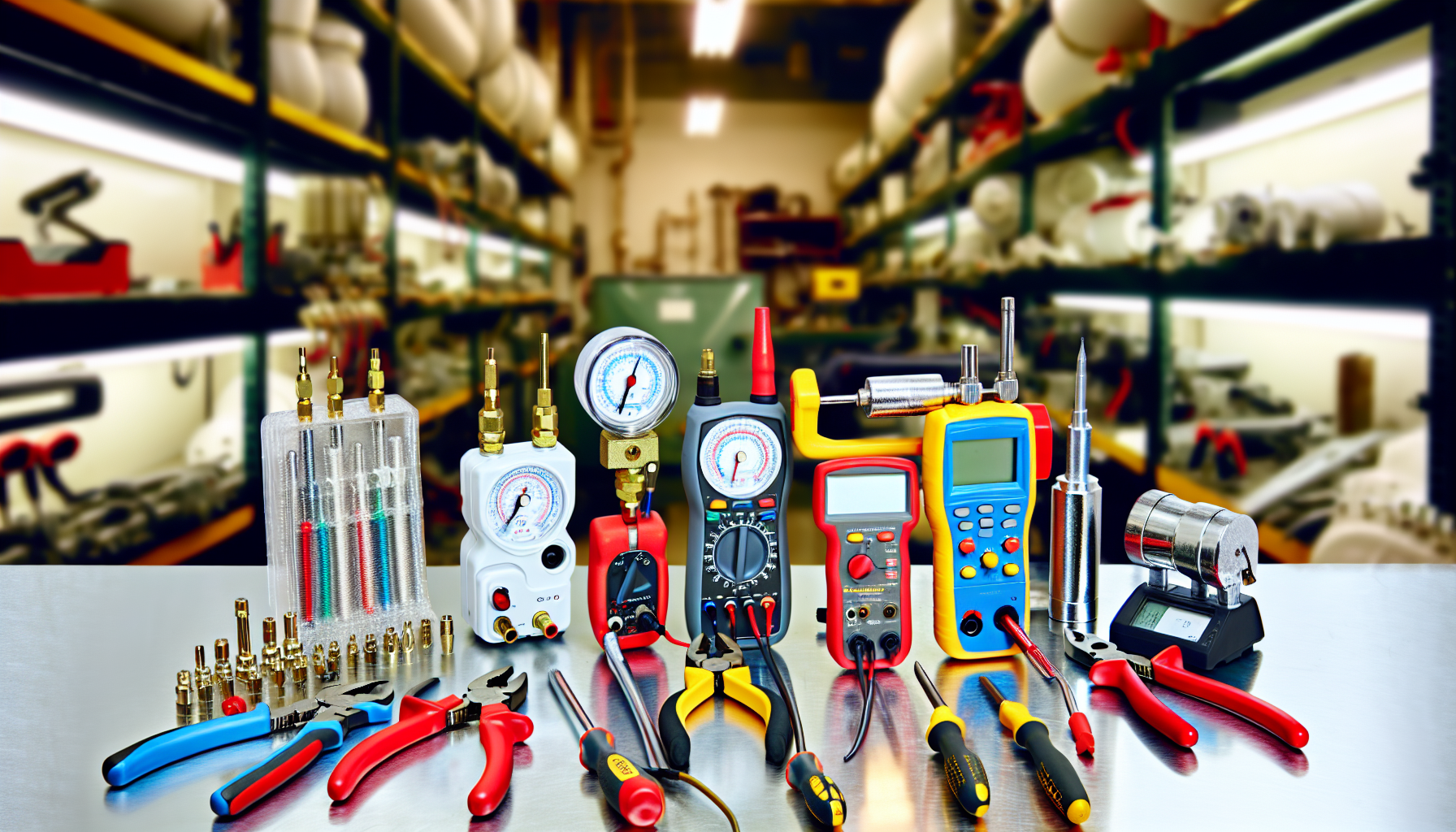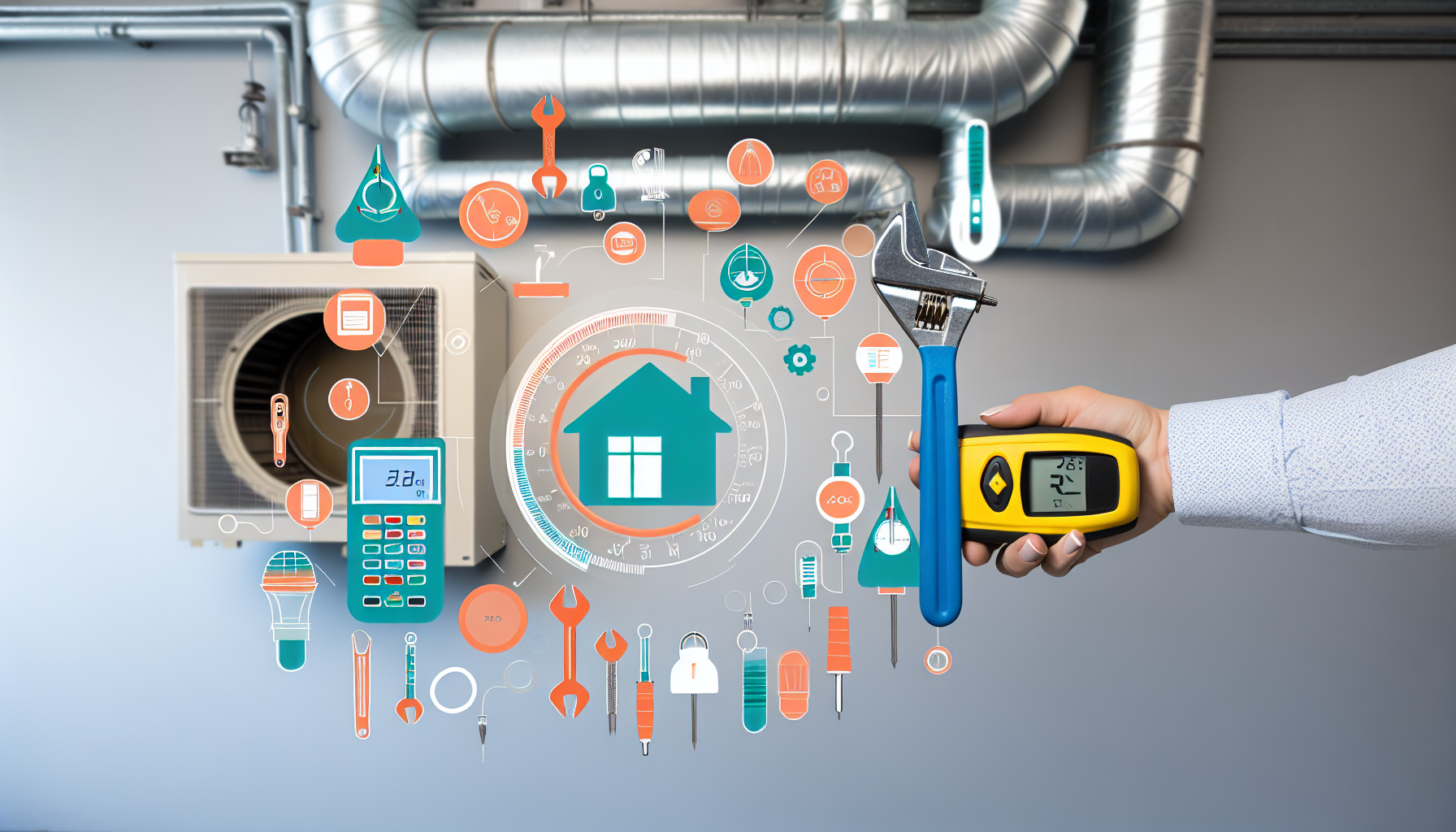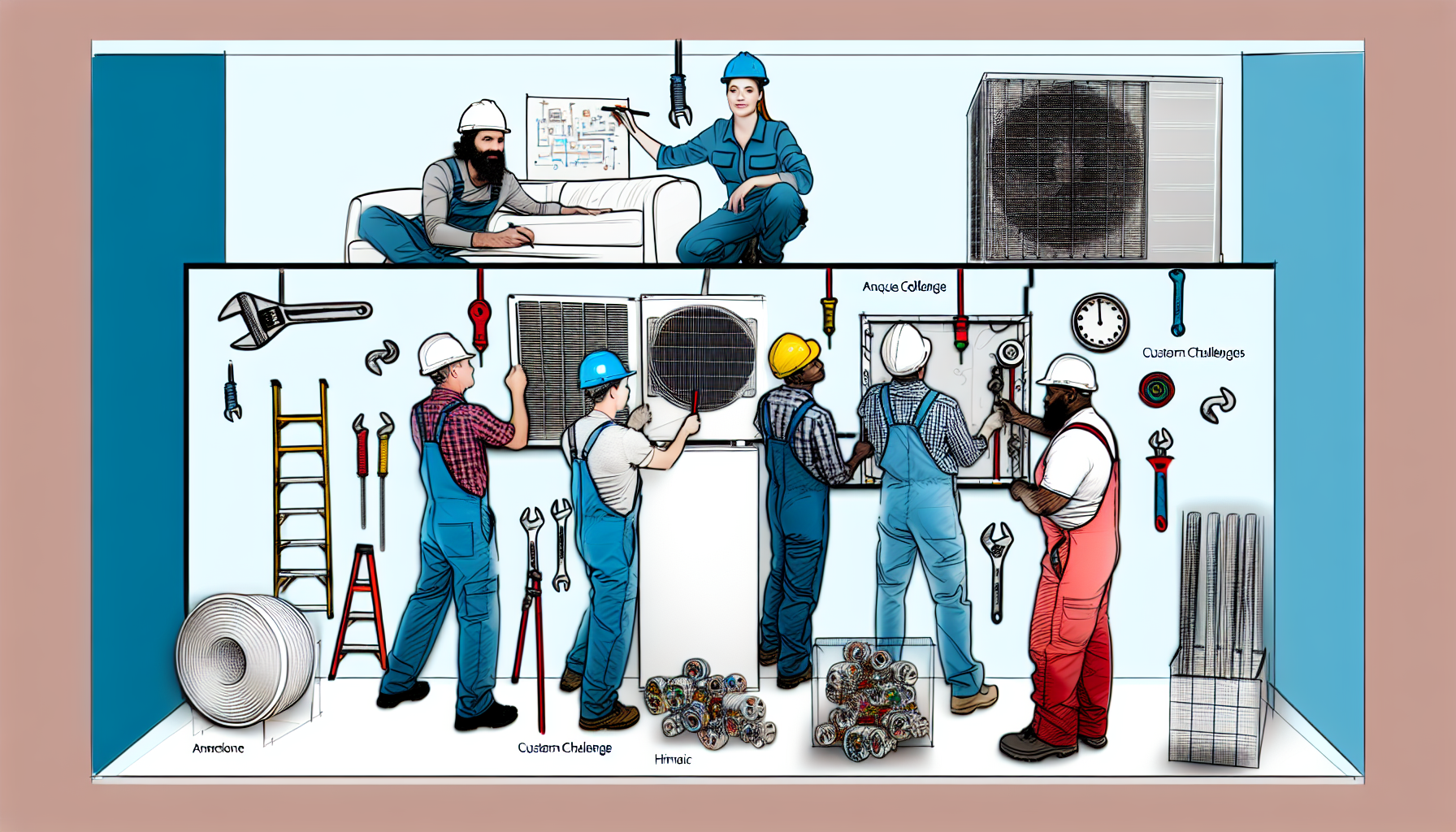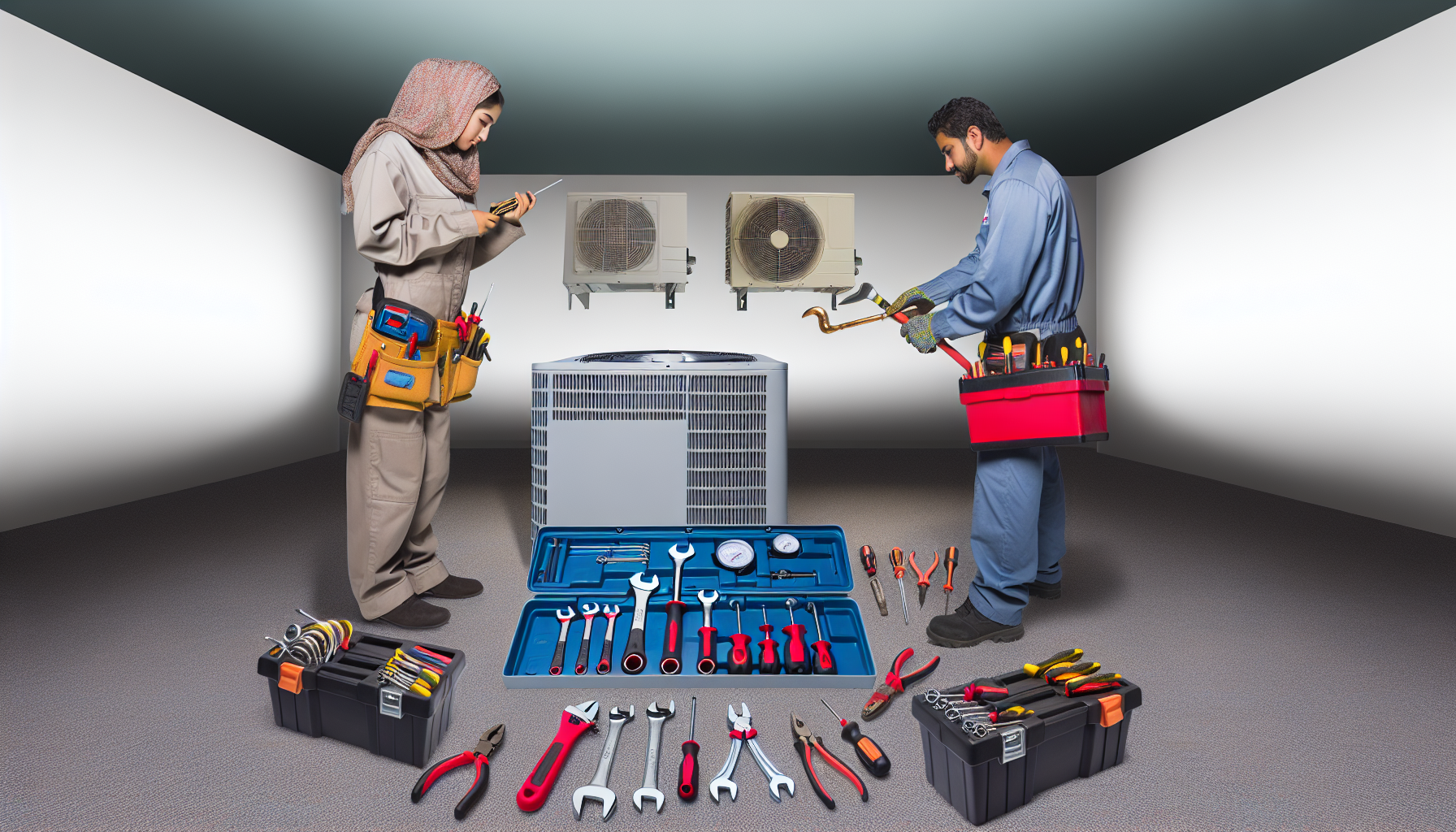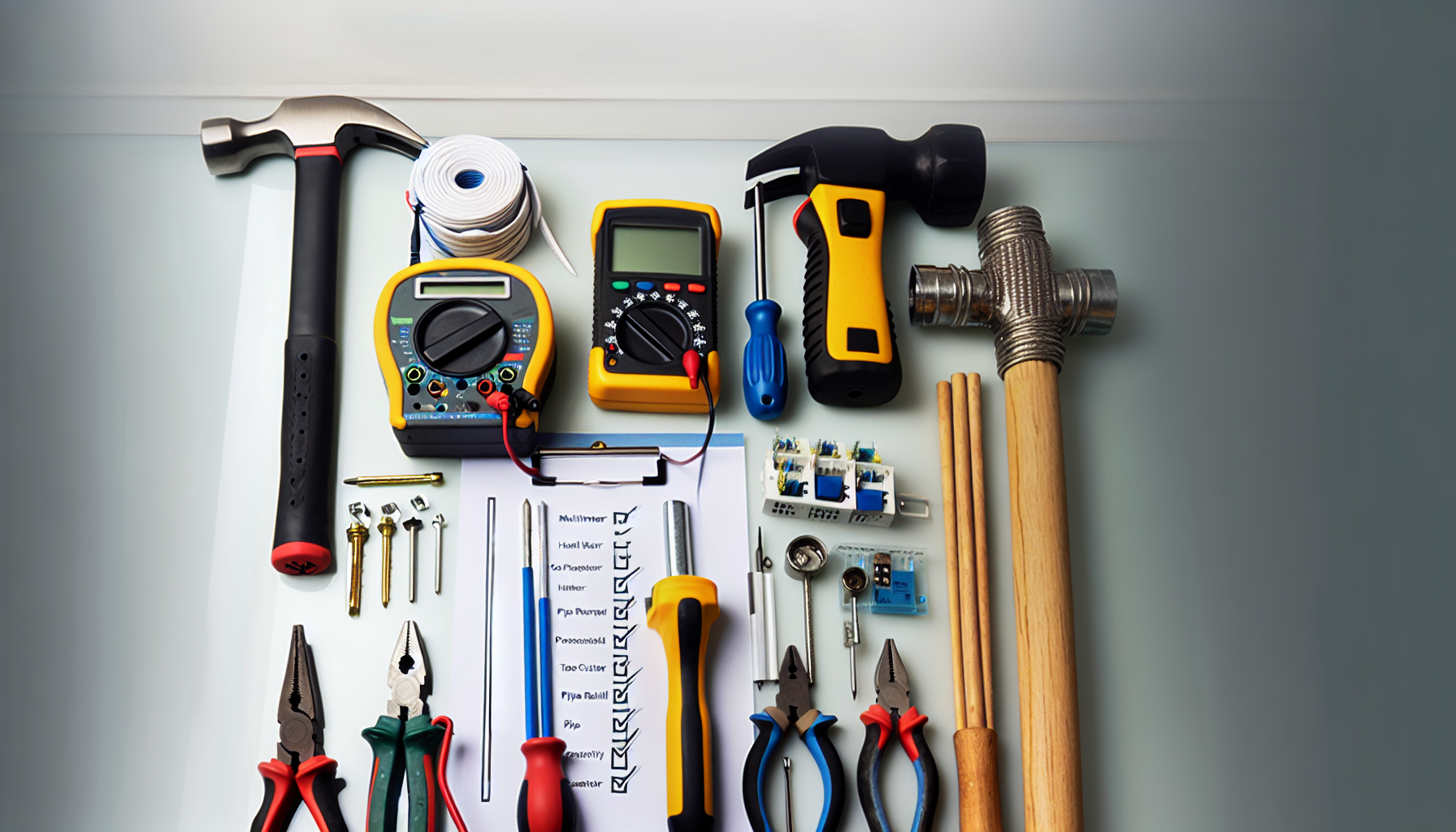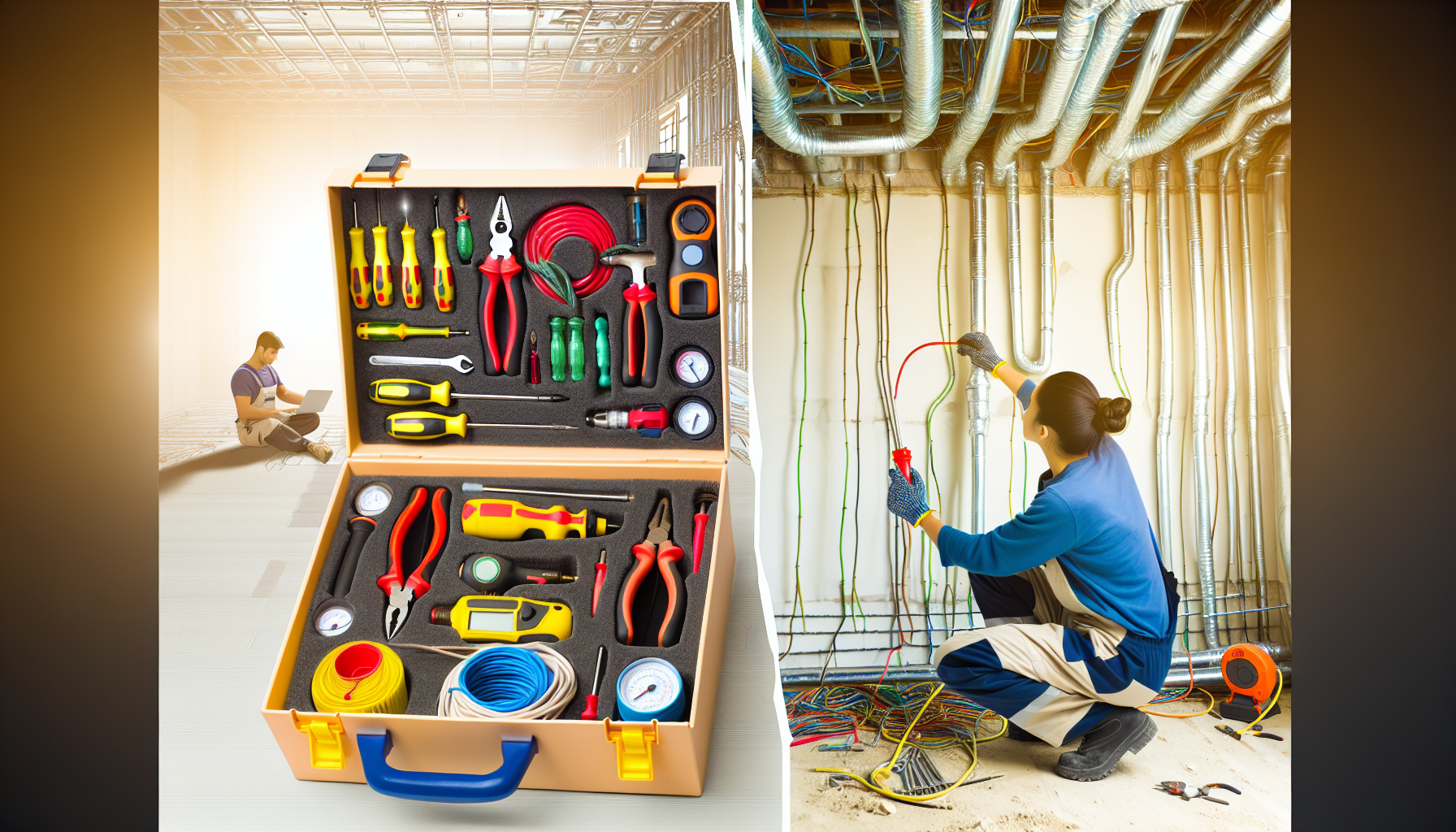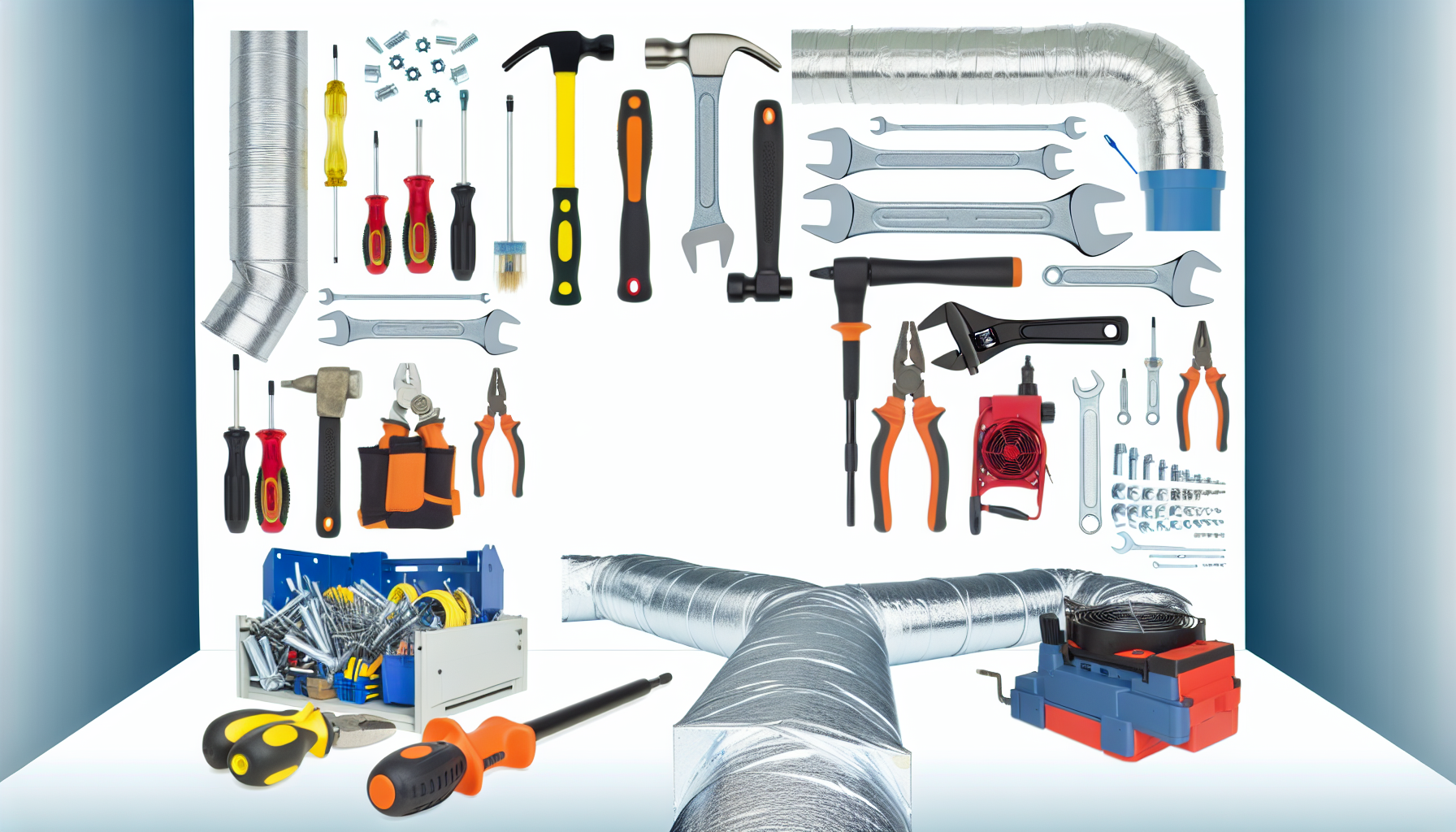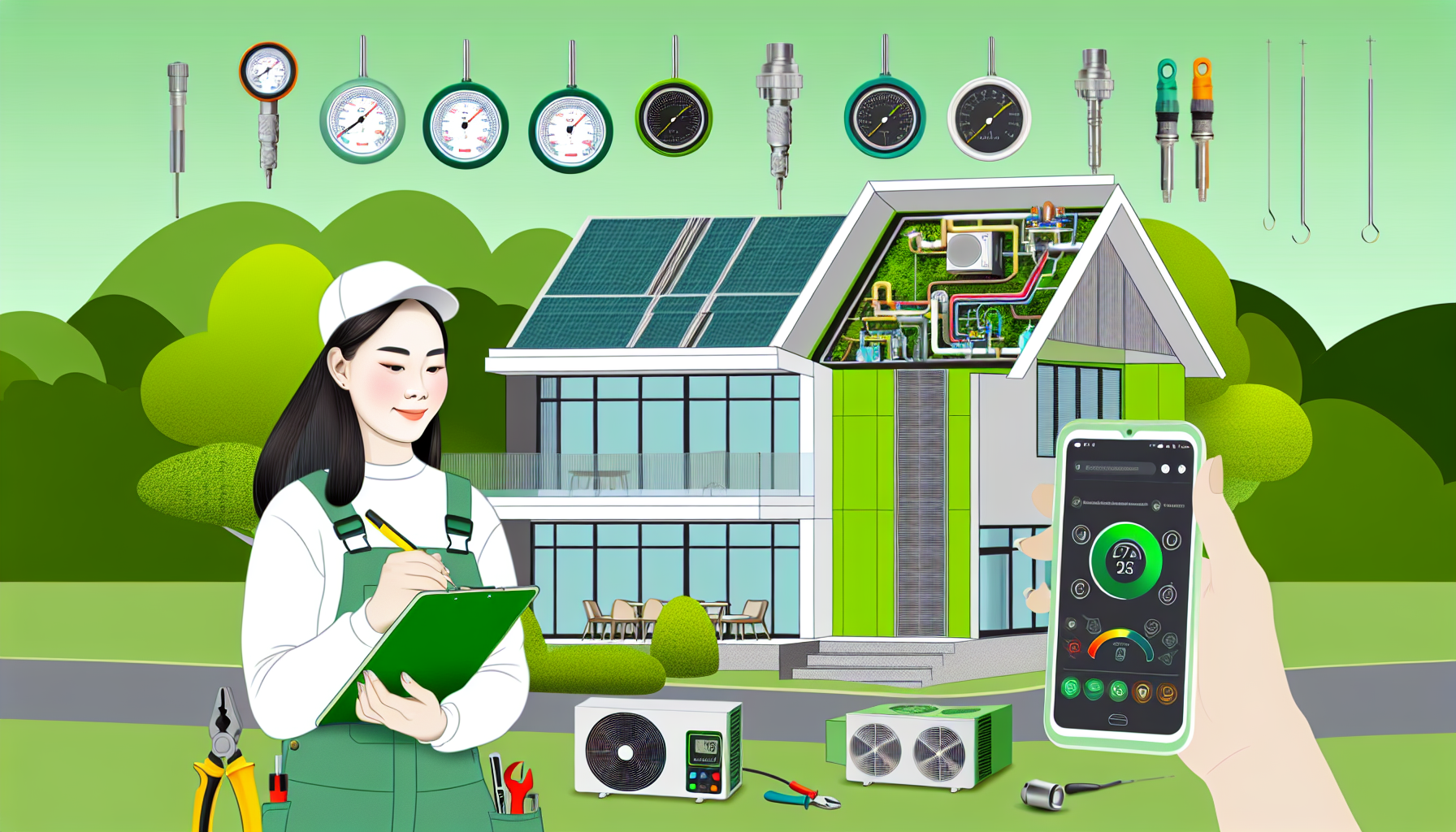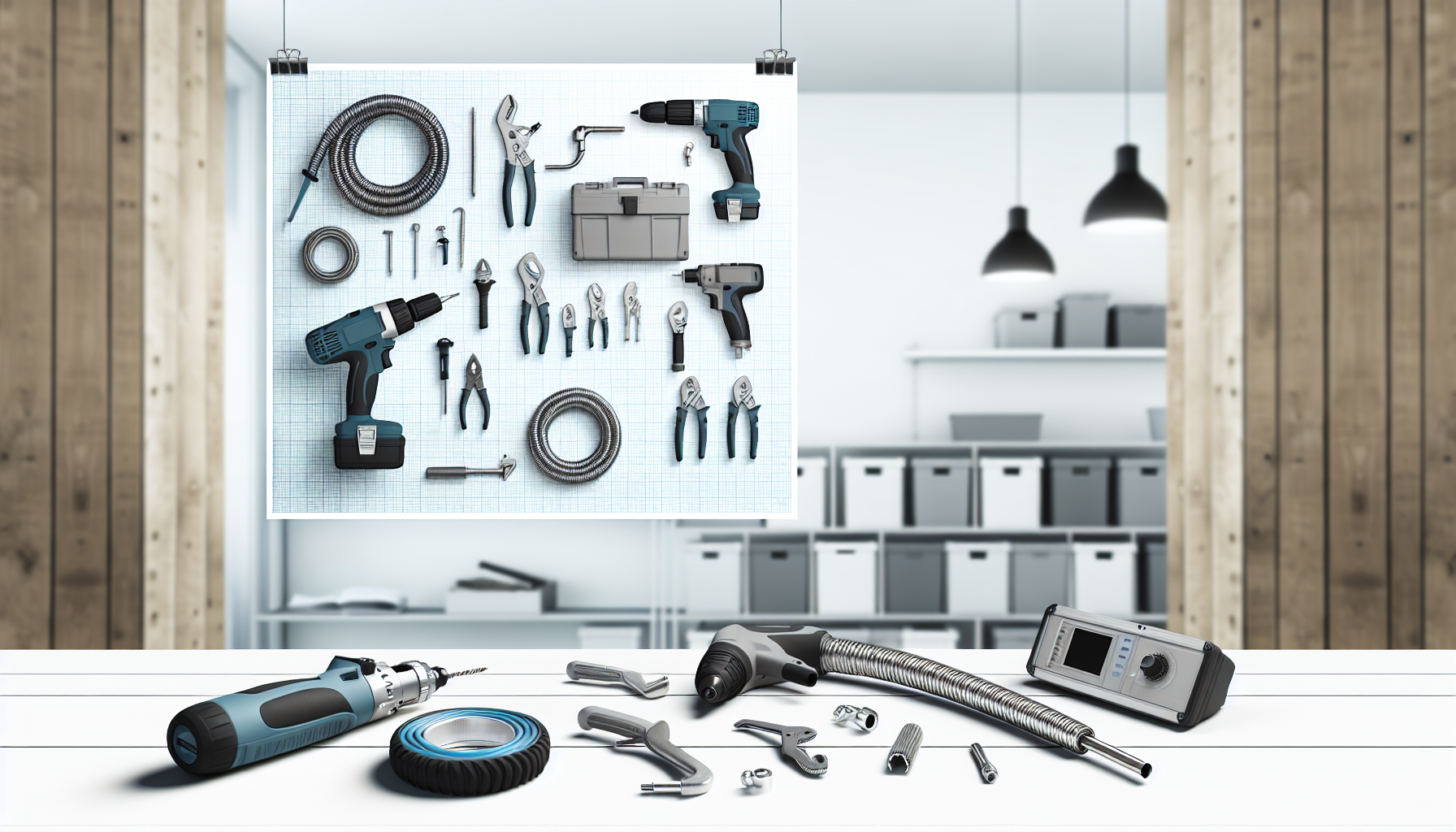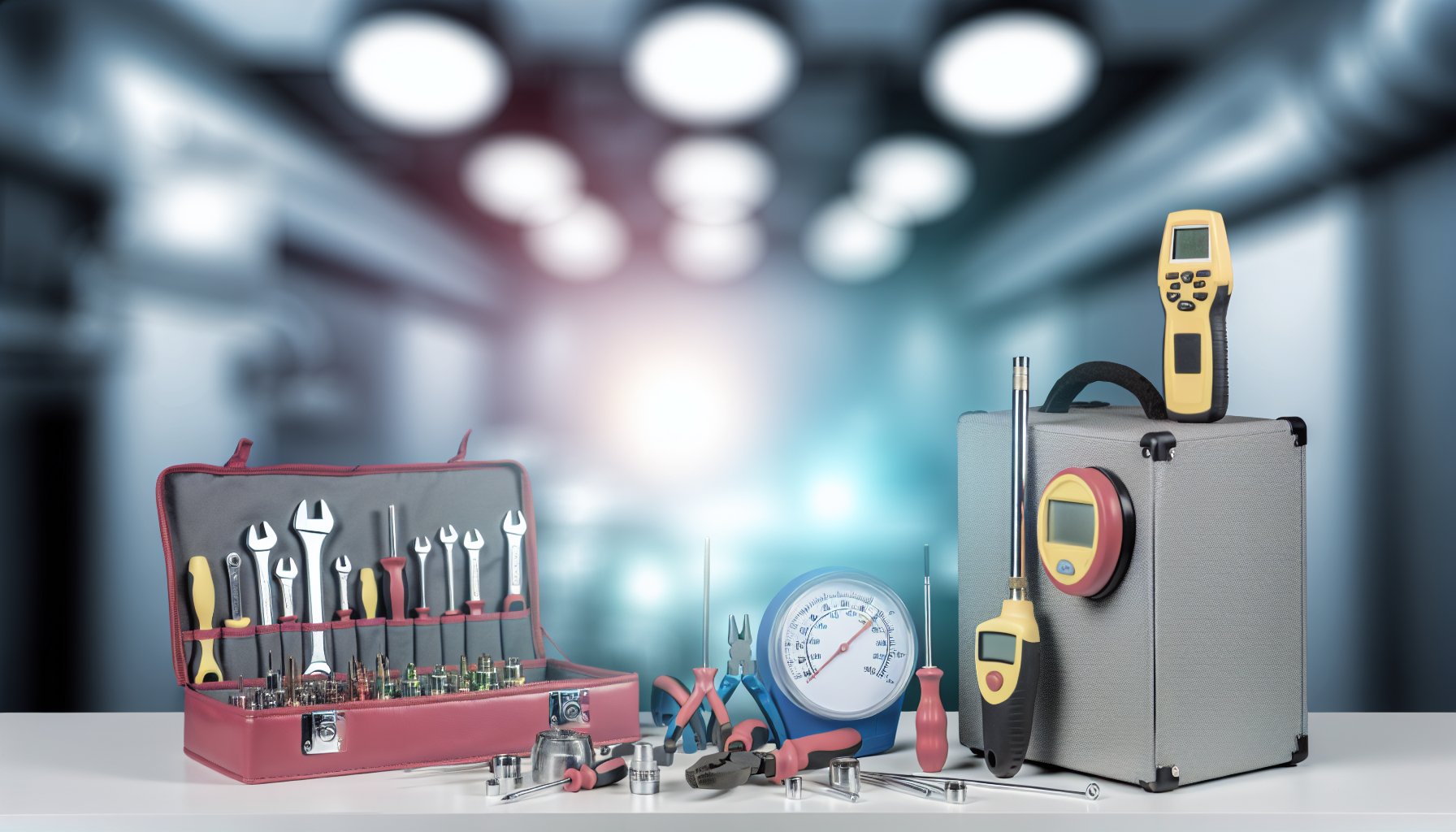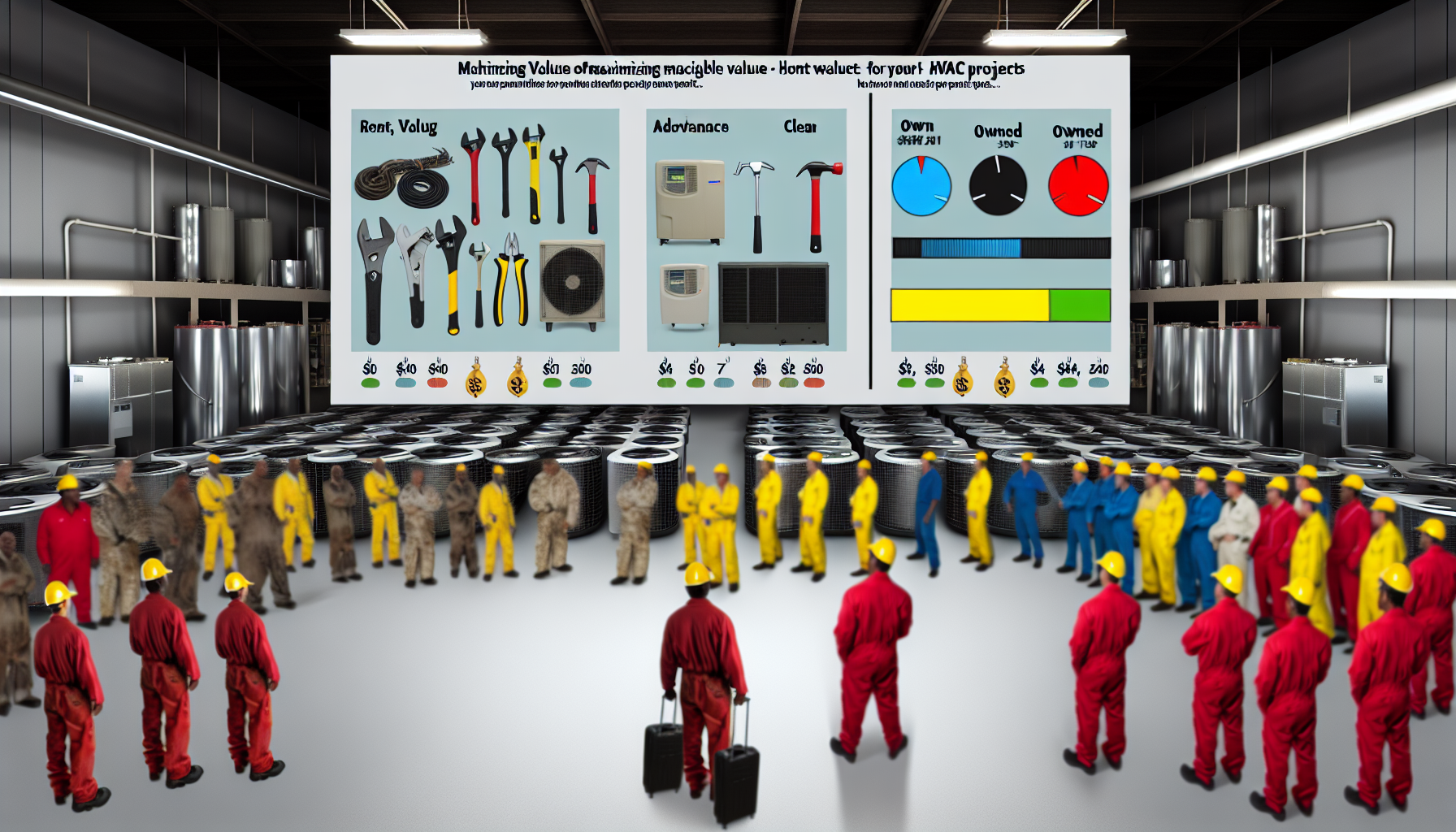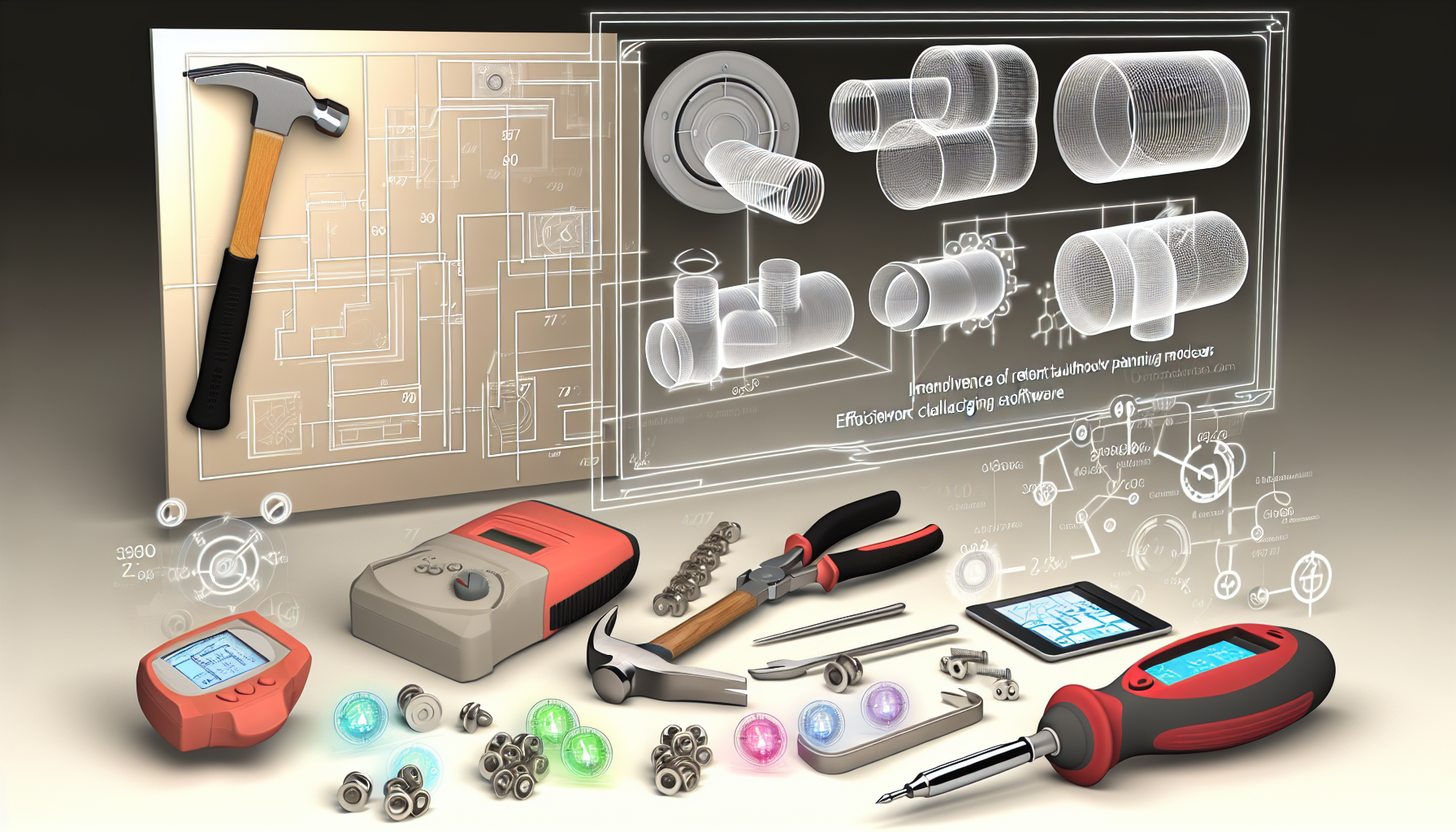Introduction
Keeping your HVAC (Heating, Ventilation, and Air Conditioning) system in top condition is a crucial aspect of maintaining a comfortable and healthy living environment. Regular maintenance not only ensures that it runs efficiently but also prolongs its lifespan and enhances its performance. In this blog post, we’ll discuss the essential tools that professionals and homeowners alike should have on hand for HVAC maintenance and the best practices for keeping your system running smoothly.
Essential HVAC Maintenance Tools
Basic Hand Tools
- Screwdrivers: A variety of sizes and heads are required for different screws in HVAC units.
- Wrenches: Adjustable wrenches and a set of standard and metric sizes will cover most needs.
- Pliers: Needle-nose and channel-lock pliers are helpful for reaching into tight spaces and gripping small components.
- Hammer: A small hammer is occasionally needed for minor adjustments or to tap components into place.
- Wire Strippers: Essential for working with electrical wiring, ensuring safe and secure connections.
- Tape Measure: Accurate measurements are crucial in HVAC work, especially for ductwork and installation.
Specialized HVAC Tools
- Multimeter: Used to test electrical components for faults.
- Manifold Gauge Set: Necessary for checking refrigerant levels and pressure within the HVAC system.
- Refrigerant Scale: Helps in accurately measuring refrigerant levels during charging or recovery.
- Leak Detector: Identifies refrigerant leaks within the system.
- Thermometer: For checking temperature differentials across the system.
- Duct Tape and Mastic: Items needed to seal ductwork and prevent air leaks.
- Telescoping Mirror: Allows the user to see into tight and otherwise invisible areas.
- Flashlight or Headlamp: Illuminates dark work areas for improved visibility.
Safety Gear
- Gloves: Protect hands from sharp metal edges, chemicals, and electrical components.
- Safety Glasses: Guard eyes against harmful debris and chemicals.
- Ear Protection: Helps prevent hearing loss while working with loud equipment.
- Respirator or Mask: Protects lungs from airborne particles and insulation fibers.
Best Practices for HVAC Maintenance
Having the right tools is just the beginning. It’s also important to follow best practices to ensure your HVAC system remains reliable and operates at peak efficiency.
Regular Filter Changes
One of the most basic but critical maintenance tasks is changing the air filter. A clogged or dirty filter restricts airflow, causes the system to work harder, and can lead to premature failure. Check your filter monthly and replace it at least every 90 days, or more frequently if you have pets or allergies.
Clean the Coils
The evaporator and condenser coils are prone to dirt and debris buildup, which can reduce efficiency and cause the system to overheat. Make sure to gently clean these coils annually or as needed.
Inspect the Ductwork
Leaks in ductwork can lead to loss of efficiency and uneven heating or cooling. Inspect your ducts for tears or separations and use mastic or a UL-approved tape to seal any leaks.
Check the Thermostat
Ensure your thermostat is working correctly and accurately reflects the temperature. It’s also advisable to replace old thermostats with programmable or smart models to save energy and maintain consistent comfort.
Professional Tune-ups
Schedule professional HVAC maintenance at least once a year. A qualified technician will check for issues, clean internal components, and ensure that your system is ready for the season ahead.
Prolonging the Life of Your HVAC System
Regular maintenance is the key to extending the lifespan of your HVAC unit. Here are additional steps to take:
Avoid DIY Repairs Unless Qualified
While some maintenance tasks are suitable for DIY, repair work often requires expert knowledge, especially concerning refrigerants and electrical work.
Keep the Area Around Outdoor Units Clear
Ensure that your outdoor unit has enough clearance for proper airflow. Keep plants trimmed and remove any debris around the unit.
Inspect and Maintain Insulation
Proper insulation in your home helps reduce the workload on your HVAC system. Check your attic, walls, and floors and add or replace insulation if necessary.
Use a Surge Protector
Voltage spikes can damage your HVAC system. Plug it into a surge protector to shield it from unexpected surges.
Upgrade to an Energy-Efficient System
If your HVAC system is old and inefficient, it might be time to consider an upgrade. Newer models offer significant energy savings and come with longer warranties.
FAQ Section
How often should I have my HVAC system serviced?
It’s recommended to service your HVAC system once a year, ideally before the peak heating or cooling season.
Can I perform maintenance on my HVAC system myself?
Basic maintenance like changing air filters and cleaning the outdoor unit can be done by the homeowner. However, more complex tasks should be left to a licensed professional.
What are the signs that my HVAC system may be failing?
Uneven heating or cooling, strange noises, unexpected increases in energy bills, and frequent cycling on and off are signs of potential issues.
How long do HVAC systems typically last?
With proper maintenance, HVAC systems can last 15-20 years. However, many factors, including usage patterns and climate, can shorten or extend this range.
Is it necessary to clean my ductwork?
While duct cleaning is not always necessary, it can be beneficial if there is visible mold growth, a vermin infestation, or if occupants are experiencing unusual symptoms of allergies or respiratory issues.
By understanding the essential tools for HVAC maintenance and adhering to best practices, you can keep your heating and cooling systems running efficiently and prolong their operational life. While some tasks can be accomplished by the homeowner, remember that complex repairs and tune-ups should typically be handled by a certified professional to ensure the best results and prevent further damage to your system.


